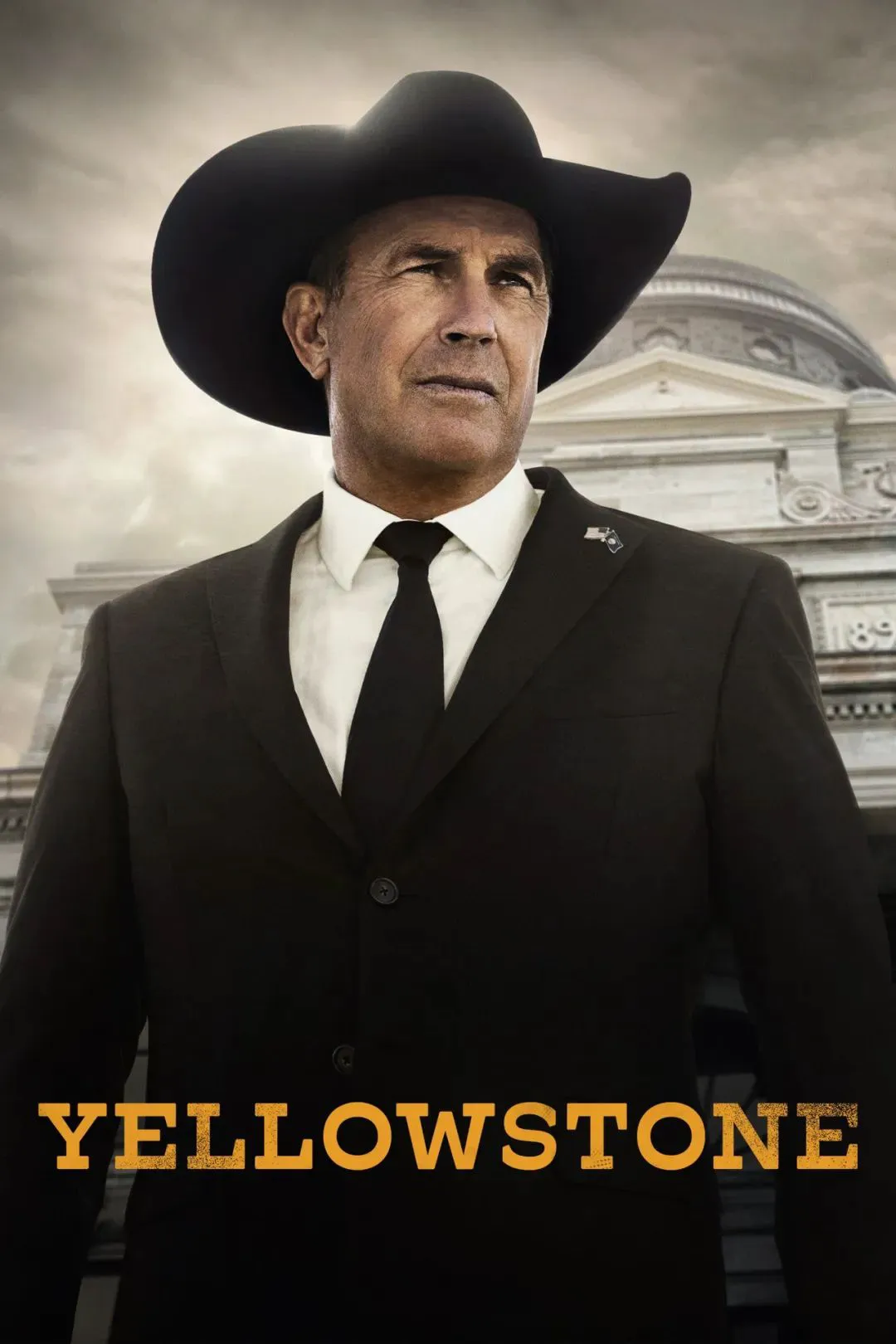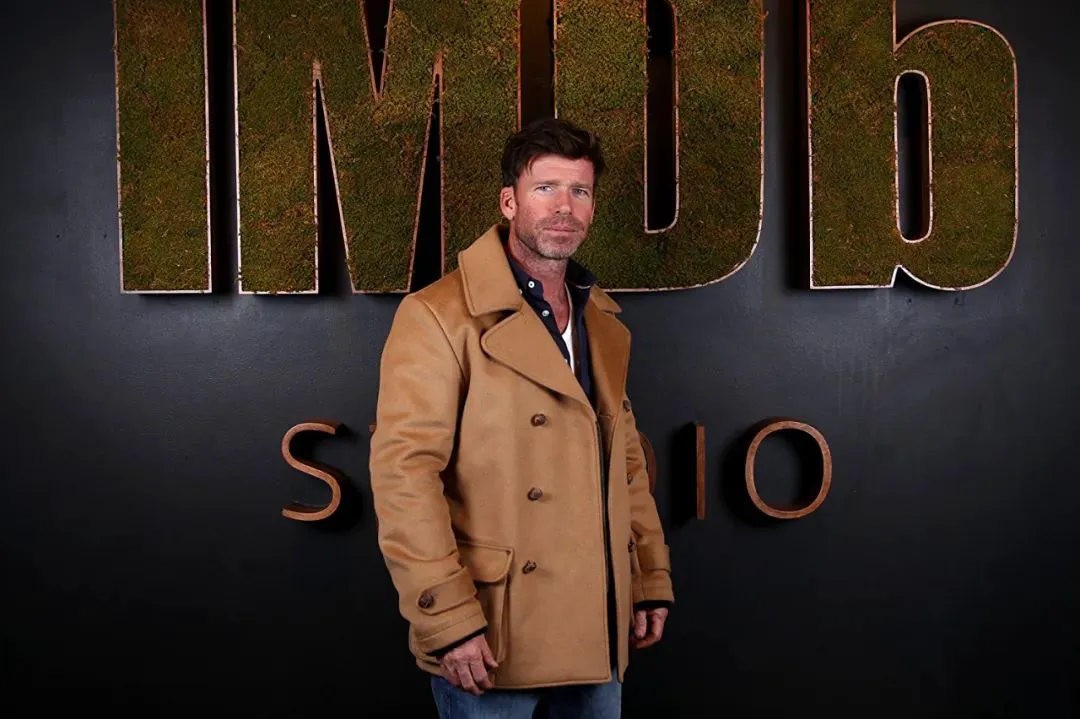Since its debut in 2018, the American drama “Yellowstone” has reached its fifth season. Over these five years, instead of declining in quality, it has garnered even more enthusiastic viewers.
Yellowstone Season 5

The poster for the fifth season deviates from the previous seasons, foregoing the ensemble cast of the first two or the abstract “Y” ranch symbol of the fourth. Instead, it features John Dutton alone, standing centrally with his cowboy hat, seemingly isolated. This raises the question: how much further can the Dutton family go, caught between internal strife and external threats?
“Yellowstone” Season 5 boasts an IMDb rating of 8.7 and an 83% freshness rating on Rotten Tomatoes, demonstrating strong critical acclaim. This Western-themed series, though seemingly anachronistic, allows fans to commemorate the bygone or long-forgotten Western genre.
Reimagining the Western Myth
Before delving into “Yellowstone,” it’s essential to acknowledge Taylor Sheridan, the show’s writer and director of the first season. Prior to 2015, Sheridan was primarily an actor, toiling in the industry since the 1990s but remaining a relatively unknown bit player.

He gained recognition after writing the screenplay for Denis Villeneuve’s “Sicario,” becoming a rising star in Hollywood screenwriting. Subsequently, “Hell or High Water” and “Wind River” completed Sheridan’s “Border Trilogy.” His keen observation of the American West’s harsh landscapes and nuanced portrayal of complex human nature became hallmarks of his storytelling.
“Wind River”
However, Sheridan sought to explore his vision of the West in greater depth through a longer format, leading to the creation of “Yellowstone.” Initially planned for HBO, the project was deemed unfavorable by executives and moved to the newly established Paramount streaming platform, envisioned as a ten-episode limited series. It was Kevin Costner’s strong interest that secured the budget for a high-profile production.
“Yellowstone” is set in Montana, near Yellowstone National Park, a Western region bordering Canada. Costner plays John Dutton, owner of the largest ranch in the United States – the Yellowstone Ranch – so vast that it requires a helicopter to traverse in a single day. As times change, the powerful Dutton faces increasing challenges. The ambitions of the neighboring Broken Rock Indian Reservation and the predatory acquisitions of Wall Street executives leave Dutton overwhelmed.
Beyond the conflicts between the Yellowstone Ranch and its adversaries, the series delves into the lives of the Dutton family members. The eldest son, Lee Dutton, obedient to his father and skilled in ranching, meets an early demise in the first episode. The second son, Jamie, is a lawyer who handles the family’s legal affairs, but is not John’s biological son.
His daughter Beth, is assertive and ruthless, excelling in finance and business, often assisting her father in complex strategic situations.
The youngest son, Kayce, is John’s favorite, skilled in hunting and combat, and inheriting his father’s sense of justice.
The first four seasons primarily focus on the internal dynamics of the Dutton family, their relationships, and the conflicts with various adversaries. To counter larger and more powerful threats, John decides to enter politics at the beginning of the fifth season, becoming the Governor of Montana. He aims to implement legislative measures to prevent financial tycoons from seizing the ranch land.
A Fusion of Western and Gangster Genres
Viewers familiar with “Yellowstone” will notice its blending of two classic Hollywood genres: the Western and the gangster film. As a product of classical Hollywood, the Western once defined American cinema, with a fixed narrative structure.
A chivalrous cowboy, arriving from nowhere, passes through a small town in the Western frontier, which is under attack by Native American tribes or threatened by outlaws. The skilled and compassionate cowboy intervenes, eliminating the villains. Afterwards, he rides off into the sunset, disappearing into the vast prairie. John Ford’s “Stagecoach” and George Stevens’ “Shane” are prime examples.
“Shane”
Cowboys, horses, revolvers, desert prairies, Western towns, Native Americans… these iconic symbols imbue classic Westerns with a rugged poetry, reaffirming traditional values of the Western frontier through a binary conflict structure.
In this respect, “Yellowstone” pays homage to Western tropes. The detailed depictions of cowboy life and the poetic capture of Western landscapes reveal Taylor Sheridan’s yearning for the Western world.
However, “Yellowstone” lacks the wandering chivalrous cowboy and the villainous Native Americans. The romantic legends and stereotypes of classic Westerns have vanished. The Dutton family alone must protect the Yellowstone Ranch. Their adversaries are not entirely devoid of morality but operate under a different set of values. This familial and local focus imbues “Yellowstone” with the characteristics of a gangster film, in addition to its Western foundation.
John Dutton commands his own armed force, from the legitimate “Livestock Association” to the loyal ranch hands branded with the “Y” symbol. He can launch small-scale operations at any time. Moreover, through years of cultivated relationships, Dutton can influence government officials such as governors, judges, and prosecutors. He is like Vito Corleone from “The Godfather,” wielding immense power in both legal and illegal realms.
The deceased eldest son, Lee, resembles Sonny from “The Godfather.” The second son and adopted son, Jamie, is a composite of Tom Hagen, the cowardly Fredo, and Carlo. The daughter, Beth, possesses both Sonny’s arrogance and Tom Hagen’s strategic acumen. The youngest son, Kayce, is undoubtedly an embodiment of Al Pacino’s Michael, ruthless yet possessing the stoicism of the older generation.
This subtle parallel between “Yellowstone” and “The Godfather” in character relationships is not mere imitation but a reincarnation of the Italian gangster film through a Western drama, ultimately examining and reflecting on traditional American values.
How Long Can the Ranch Endure?
In the first two episodes of the fifth season, John Dutton appears all-powerful, having become the Governor of Montana, and hosts a grand celebration at his ranch. However, unsettling signs are hidden within the details.
During the inauguration ceremony, John experiences a moment of distraction, as if sensing the future outcome. The long-standing animosity between Jamie and Beth is irreconcilable this season, and the former is likely to be exploited by outsiders, becoming the Dutton family’s primary traitor. As for Kayce, his wife Monica is involved in a car accident, and their child dies. Combined with Kayce’s vision of the end, guided by the white wolf in the previous season, it seems that greater dangers await the Dutton family.
Therefore, the Dutton family’s apparent glory in the first two episodes is like the wedding at the beginning of “The Godfather,” or the imperial visit in “Dream of the Red Chamber” after Yuan-chun’s promotion to imperial concubine. All disasters are hidden within the overwhelming glory. Even Rip, who has always been respectful to John, remarks after seeing the celebratory banquet: “He (John) will lose this place,” comparing him to Nero, who led to the destruction of the first Roman Empire.
In fact, “Yellowstone” is not about the Dutton family’s comeback and revitalization. In the previous four seasons and even the fifth season, all the episodes about John’s powerful attacks are just a Quixotic struggle. Whether it is Dan Jenkins, the head of the “Paradise Valley Development Project” in the first season, or the executives of the Market Equities Group in the subsequent seasons, they all symbolize an irresistible force: “modernization.” John is determined to preserve his ancestral heritage, passing the ranch down to his children and grandchildren, like a late feudal aristocrat always fantasizing about the continuation of his title.
However, the modern commercial process will not be merciful to him, even if John possesses the decency and benevolence of a traditional cowboy, as evidenced by his efforts to save environmentalists. What is being crushed by the modernization process is not just the Yellowstone Ranch, but also the Dutton family’s relationships. The series constantly emphasizes that the family has never had a complete and harmonious meal at the dinner table. This is to imply that the traditional human relationships that John yearns for have already been fragmented by the intrusion of modern civilization.